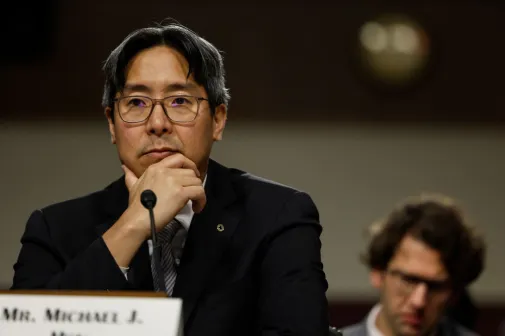Government not just looking to regulate AI, but use it too

Whether it is defending nuclear weapons, reducing drunk driving fatalities or shrinking bureaucratic workload, artificial intelligence is changing the way the government works, a panel of government leaders said Wednesday at FedTalks.
Leaders from the Department of Homeland Security, Department of Energy, Department of Transportation and White House Office of Science and Technology Policy spoke at FedTalks on the importance of AI and machine learning with a clear message: The government will not only regulate AI but use it.
“It cuts across everything,” Dimitri Kusnezov, deputy undersecretary for AI and technology at the Department of Energy, said about the importance of AI.
DOE is using AI and machine learning to process data that would take eons if it was to be processed by hand. The data the department handles has to deal with the energy supply grid —from power plants to pipelines — and intelligence collection for nuclear non-proliferation, among other sources. The challenges the department deals with make utilizing AI a necessity, Kusnezov said.
At Transportation, the problems are different but part of the solution is the same, said Finch Fulton, deputy assistant secretary for transportation policy. Each year more than 37,000 people die in car crashes, often the result of human error. If artificial intelligence and machine learning technology can remove that human error through the implementation of automated vehicles, Fulton said those deaths could be reduced.
“Remove human error, you can dramatically improve safety,” Fulton said.
Currently, semi-automated cars are already on the road, but the technology has not reached the level of full automation, nor has the regulation. Those types of fully self-driving cars will leap from the pages of science fiction to reality soon, Fulton said.
Productive regulation of AI is a top priority of the White House, said Lynne Parker, assistant director for artificial intelligence at the White House Office of Science and Technology Policy. Beyond just the implication of AI technology, Parker and her colleagues at OSTP are looking at enhancing the workforce and education around AI and machine learning. In the summer, the Office of Information and Regulatory Affairs plans to release a memo on regulating AI, she said.
And at the Department of Homeland Security, AI will take over the need to expend human capital on document reading, said Bill Pratt, the director of strategic technology management at DHS. Instead of employees turning hundreds of pages, lines of code will comb through department documents, Pratt said.






